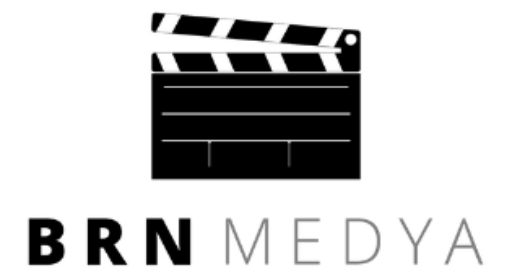How to Break the Cycle of Addiction: A Step-by-Step Guide to Long-Term Recovery
Supporting someone through trauma healing can be emotionally demanding. Maintain your own support system and https://ddpskov.ru/en/vse-analizy/3-nedeli-beremennosti-foto.html self-care practices to prevent compassion fatigue. Create space for your loved one to share their experiences and insights without trying to “fix” their feelings or offer simplistic solutions. Sometimes, being truly heard is the most powerful form of support.
Continued exposure to the behavior leads to tolerance, where larger amounts of the substance are required for the same effects. Addiction is a complex illness that causes lasting changes in brain chemistry and functioning. These changes do not only make a person crave their addiction, they can lead to emotional, psychological, and physiological dependence, affecting every aspect of a person’s life. Addicts find that they’re trapped in a complex cycle of addiction from which breaking out seems impossible.
Common triggers of relapse
Since these providers may collect personal data like your IP address we allow you to block them here. Please be aware that this might heavily reduce the functionality and appearance of our site. Seth brings many years of professional experience working the front lines of addiction in both the government and privatized sectors.
Recognizing Addiction and Accepting the Need for Change
- The length of the cycle varies among addicts, and it’s difficult to break out of the addiction cycle without help.
- This stage can last between six months to five years, depending on genetic factors and the severity of the addiction.
- Addiction is a chronic disorder characterized by compulsive substance use, loss of control, and withdrawal symptoms when not using substances.
- Find a therapist who specializes in compulsive behaviors and emotional regulation.
- When they find success in rehab, they realize it wasn’t that rehab didn’t work—it was the initial approach to rehab that hadn’t worked for them.
Just because you’ve decided to break the addiction cycle doesn’t mean that the cravings and urges occasionally won’t appear. This is a fact you should accept and instead prepare yourself to fight off these cravings and urges regardless of how overwhelming they might feel. You can best accomplish this by becoming more aware of your addiction and resisting the temptation of falling back into addictive behavior. The world’s hectic and frantic nature can make you feel extremely anxious and stressed.
By taking intentional breaks from your most tempting triggers, you allow your reward pathways time to stabilize, reducing cravings and giving simpler pleasures room to shine. Many apps and online services purposely encourage digital addiction through addictive design elements like infinite feeds, auto-play videos, and unpredictable reward schedules. The human brain is wired to seek out fresh information, and each new notification or recommended link can elicit a minor spike in dopamine. This cycle rewards continued use and makes unplugging challenging, even when you recognize it’s taking a toll. Replacing these with techniques used in metacognitive therapy can improve impulse awareness and decision-making. As a result, individuals may slip into patterns of impulsive browsing and mindless time spent online, reinforcing the habit at the expense of real-world priorities.
Breaking an addiction isn’t just about quitting — it’s about changing how you deal with life. The cravings, the triggers, the stress — they don’t magically go away just because you stopped using. It’s about building habits that can hold up when life doesn’t go as planned. Meditation effectively breaks your addiction cycle because it reinforces cognitive behavioral therapy that helps you shake off an addictive behavior. It does this by stimulating you to live in the moment rather than worrying about the problems you’ll need to deal with later.
Start Getting Better Now
Breaking the cycle requires acknowledging the problem, seeking professional treatment, addressing underlying issues, building a support system, and developing healthy coping mechanisms. Once an individual is dealing with this disease, addiction keeps them in a state where they are powerless to resist their desire for their substance of choice. After the brain’s reward system becomes used to it, the cravings and substance-seeking behaviors will follow.
The Benefits of Holistic Therapies in Mental Health Treatment
Give us a call today to verify your insurance coverage or to https://mcgaide.ru/en/drugoe/alkogolnaya-epilepsiya-simptomy-2.html learn more about paying for addiction treatment. If you have a co-occurring mental health condition like depression or anxiety, look for treatment centers offering dual diagnosis programs. If you feel you would benefit from addiction treatment, now is a good time to start some basic research. Assuming you admit that you have a problem with substances, breaking addiction habits that have become ingrained will take some sustained effort. Learning how to break the cycle of addiction, then, has never been more important, with scientists estimating between 40% and 60% of your potential for addiction is genetic.
Both perspectives highlight the interconnectedness of personal circumstances and the recovery process, emphasizing the necessity of tailored support systems. Moreover, engaging in community activities or volunteer work can cultivate a sense of purpose, which is pivotal for sustained recovery. Consistent engagement with supportive networks not only aids in daily challenges but also significantly lowers the risk of relapse by reinforcing commitment to sobriety. Finally, celebrating milestones throughout recovery—no matter how small—reinforces the commitment to sobriety. Engaging in healthy, fulfilling activities can promote overall well-being and provide a positive outlet for energy previously directed toward substance use. Understanding what situations, emotions, or environments lead to cravings can help individuals modify their daily routines to reduce exposure.
Cognitive-Behavioral Therapy (CBT)
At Royal Life Centers, we guide and support our guests through the stages of recovery to help them get their lives back. Drug rehabilitation at Royal Life Centers includes intensive therapies and other proven effective methods of addiction treatment. Breaking free from the cycle of addiction isn’t easy, but it is possible. Change starts with recognizing what’s keeping you stuck and taking real steps to break the cycle.
It depends on the individual, but some people feel guilt immediately after drinking or using. The cycle of addiction starts with an emotional trigger—a feeling, thought, or memory that’s often rooted in past pain or trauma. Ultimately, what’s fueling the cycle of addiction is the urge to suppress or shut down those unpleasant emotions or thoughts before or when they arise. Addicts rarely break the cycle of addiction without guidance from people who have their best interests at heart. Because it takes time for addiction to develop, it also takes time to break the cycle of addiction. The longer someone continues the ritual of addiction, the deeper entrenched it becomes, and the harder it can be to break the cycle.
This cycle is driven by changes in brain chemistry and structure, leading to an overpowering need that overshadows health, relationships, and personal well-being. The addiction cycle is often set in motion by triggers that you can identify by examining your daily habits. Triggers could be stress, an argument, or being around people who use the substance of choice or engage in the same addictive activity. Avoiding or eliminating these triggers is crucial to breaking the addiction cycle. A person may try an addictive substance for several reasons, including peer pressure, boredom, curiosity, stress, or performance enhancement.
Discover why mixing prescription drugs with alcohol is dangerous and the risks it poses to health. Discover the connection between hypnosis and drug addiction, its effectiveness, and role in recovery. Discover how exposure therapy treatment can revolutionize opiate addiction recovery. Discover a comprehensive outline of treatments for drug https://lancier.ru/en/bolezni-i-narusheniya/kak-nauchitsya-smotret-v-raznye-storony.html abuse, from therapy to holistic approaches. Discover why life is boring without drugs and embrace a fulfilling, empowered journey to recovery. Discover the methamphetamine vaccine breakthrough revolutionizing addiction treatment and offering new hope for recovery.

